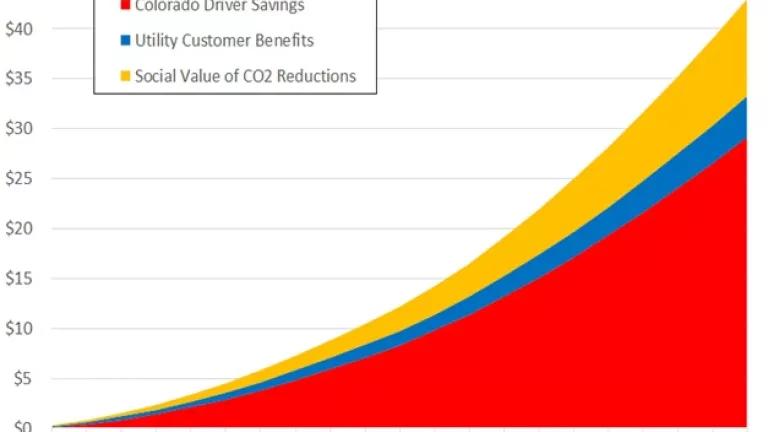
Bipartisanship may be an endangered species in D.C., but it is alive in Colorado, where Senators Kevin Priola (R) and Angela Williams (D) were the prime sponsors of legislation that aimed to give Coloradans access to cleaner, cheaper, transportation fuels.
Senators Don Coram (R), Lois Court (D), Stephen Fenberg (D), and Beth Martinez Humenik (R) joined them as co-sponsors of Senate Bill (SB) 18-216, a remarkable demonstration of bipartisan support for a bill that would have allowed utilities to facilitate the deployment of charging stations for electric vehicles (EVs).
Skeptics raised questions as to whether EV charging would strain Colorado’s electric grid, but real-world data from California, which has nearly 400,000 EVs on the road reveals that EVs are not crashing the grid. Only 0.16% of EVs in the state have required a grid upgrade, accounting for less than one one-hundredth of one percent of utility distribution system expenditures.
In fact, because EVs are generally charged during hours of the day when there is plenty of spare capacity in the grid (e.g., in the middle of the night when people are sleeping), the additional revenue that comes from those electricity sales exceeds associated costs. This spreads the cost of the grid over more kilowatt-hours sold, reducing the price per kilowatt-hour, putting downward pressure on utility rates and bills as a result.
A report conducted by MJ Bradley and Associates quantified that impact, finding that widespread EV adoption would reduce Colorado utility customer bills by $4.1 billion by 2050. The same analysis estimates that widespread EV adoption would save Colorado drivers nearly $30 billion by 2050 in reduced fuel and maintenance expenditures.
Unfortunately, Coloradans may not realize those benefits unless legislation like SB 18-216 is signed into law. Unlike other nearby states that have adopted laws to encourage utility investment in alternative fuel vehicle infrastructure, including Arizona, Nevada, Oregon, and Utah, Colorado law expressly prohibits investor owned utilities from deploying alternative fuel vehicle infrastructure. This unique statutory prohibition is a barrier to the build out of alternative fueling infrastructure across Colorado. SB 18-216 would have lifted that prohibition and allowed for partnerships between utilities and independent fuel providers to emerge.
In fact, the bill was supported by independent EV charging companies who wanted to partner with the electric industry to deploy a more robust network of charging stations to ensure all Coloradans have the opportunity to drive on electricity, which is the cost equivalent of buck-a-gallon gasoline in the state. This would allow families who spend a disproportionate share of their income on gasoline to be free from the wild fluctuations of the global oil market.
Unfortunately, fossil fuel interests who have no interest in providing Coloradans alternatives to oil defeated the bill in committee. But I wouldn’t say it died. Good ideas never die, and good ideas supported by legislators on both sides of the aisle eventually prevail.
